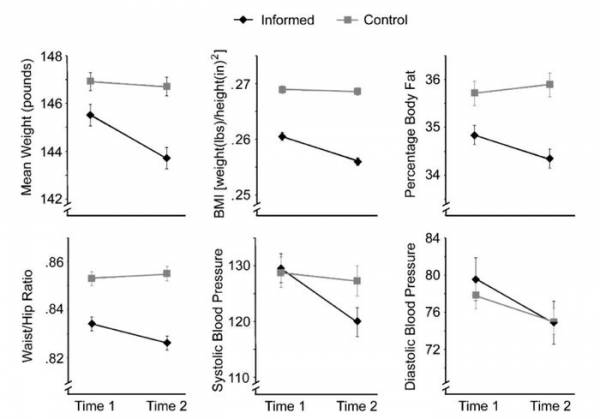In a previous article, I discussed how taking a placebo can improve performance. For example, taking a supplement, which contains no active ingredients, helps athletes perform better. The placebo effect is dependent on what we perceive the substance will do. The stronger we believe the substance to be, the greater our benefit.
And placeboes are not limited to substances. They could also be equipment (e.g., compression shorts) or an activity (e.g., a warm-up routine). So, what if we could tell ourselves that something we are already doing can improve our performance?
Testing Our Perceptions
Researchers Alia Crum and Ellen Langer set out to test how we perceive our activities and how it can change the outcomes. Specifically, they wanted to test the effect on weight loss.
Crum and Langer looked at hotel housekeepers, who are generally very active throughout the day. However, 67% of maids reported they didn’t get any exercise at all. Measurements of the housekeepers’ body fat, waist-to-hip ratio, and BMI indicated outcomes similar to their perceptions, as they tended to be overweight and out-of-shape.
Your new weight-loss routine.
What if we could change their perceptions?
The researchers divided the 84 housekeepers into two groups. One group was told how much their daily activities counted as exercise (specifically, how many calories were burned for each type of activity they did). The other group received no information and served as the control group.
The maids were then measured one month later. Those who were told their work counted as exercise lost body fat, bodyweight, and had better waist-to-hip ratios. Indicators of blood pressure were also improved.

The housekeepers who were informed of their daily energy levels showed significant health improvements.
Critique
The results of this study are quite impressive. Housekeepers lost about three pounds and had a reduction in body-fat percentage. One potential issue is that the housekeepers might have acted differently after being told their activities counted as exercise. They might have done things more rigorously and this change in behavior could account for the difference.
This broadens the definition of the placebo greatly. Langer’s earlier work with Larry Perlmuter focused on increasing the perception of control in nursing home residents. By giving these residents a plant to care for or choices over their breakfast, they increased life span. Just the simple act of changing people’s perceptions seemed to help them live longer. If true, the placebo effect can be very powerful.
How Can I Apply This to Me?
In the earlier article on the placebo effect, we discussed how taking supplements might have positive effects even if they don’t work. The direct application from Langer’s work is to change your perception of what you do throughout the day. If you are at a desk, you can think about how many calories your brain takes to focus on the day’s work. It is estimated your brain burns about 20% of your daily calories. If you are active at work, you can think about how all those extra calories burned can lead to getting leaner. In general, think about how many calories are burned by your regular daily activities.
“The direct application from Langer’s work is to change your perception of what you do throughout the day.”
A less direct application might be how you perceive recovery. Many people have a difficult time taking a day off from the gym. Thinking about how your muscles and joints are recovering on your days off might make for super recovery.
Summary
In both of my articles on placebos, we can see the placebo effect can improve our endurance, strength, and possibly even weight loss. Our perceptions of our activities and the substances we take affect our outcome. These effects seem quite powerful and are often surprising.
Personally, I want to try taking new Super Amino Necisstous (and the new formula, Super Amino Impecunious), which might increase my strength by twenty percent.
In the next article, we will cover the nocebo effect (I did not make that name up). In the meantime, if you have questions about the placebo effect, post them to the comments below.
Check out these related articles:
- The Placebo Effect and Athletic Performance
- Are the Benefits of Aerobic Exercise in Your Head?
- Chore Training – How to Move More and Have a Really Clean House
- What’s New On Breaking Muscle Today
References:
1. Crum, Alia J., and Ellen J. Langer. “Mind-Set Matters Exercise and the Placebo Effect.” Psychological Science 18, no. 2 (February 1, 2007): 165–71. doi:10.1111/j.1467-9280.2007.01867.x
Photo 1 courtesy of Shutterstock.






